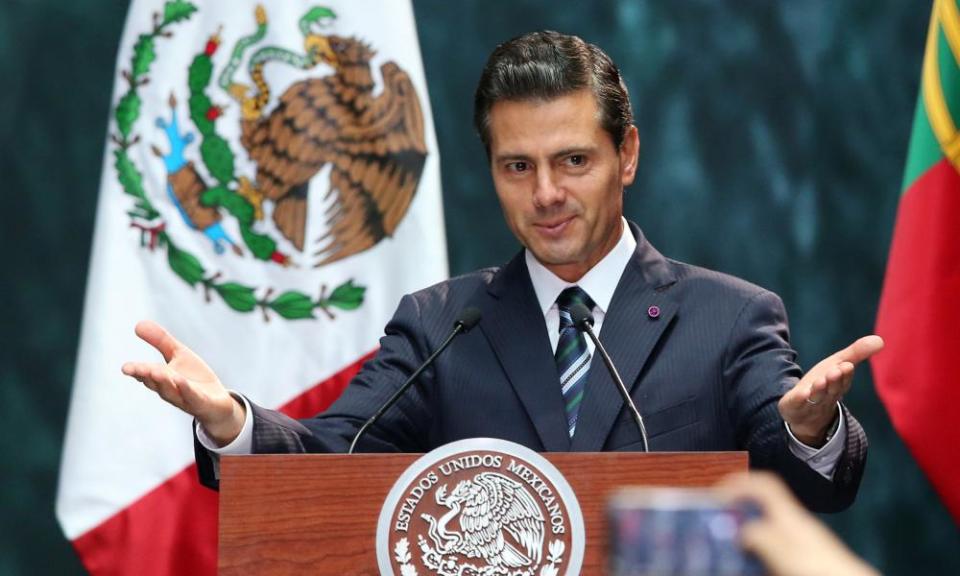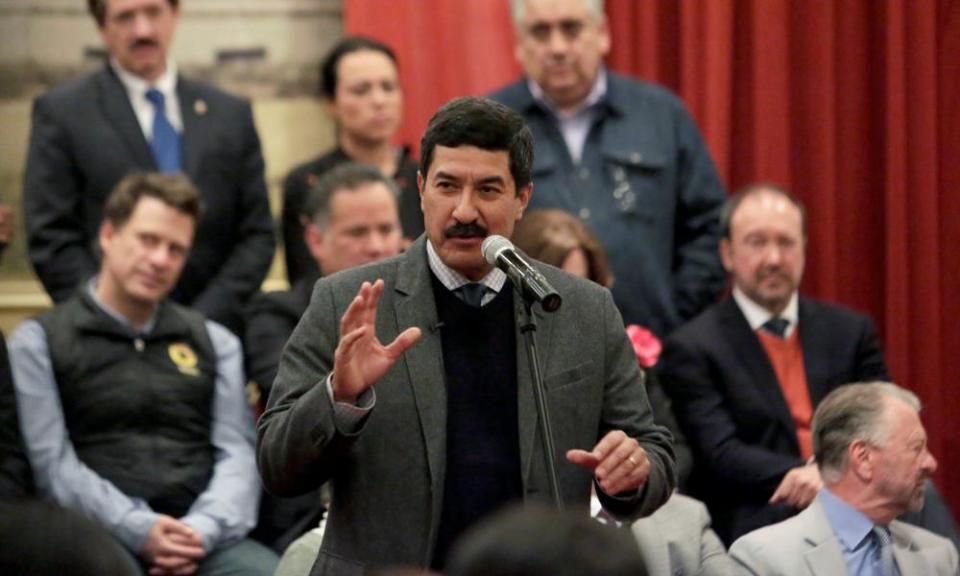Mexican governor claims retaliation for inquiry into government corruption
Tensions deepen between Chihuahua governor and ruling party, amid claims the government used shell companies to finance election campaigns in 2016

A Mexican regional governor has accused the federal government of strangling his state’s finances in retaliation for corruption charges against prominent members of the country’s ruling party.
Chihuahua’s governor, Javier Corral, said on Monday that the federal government had withheld £30m to force state prosecutors to quash an investigation into allegations that president Enrique Peña Nieto’s Institutional Revolutionary Party (PRI) used shell companies to improperly finance election campaigns across Mexico in 2016.
“It’s clear the money isn’t coming because of this investigation,” said Corral, who ousted the PRI in Chihuahua in 2016 with a right-left coalition of the opposition National Action party and Democratic Revolutionary party.
“The Chihuahua government has acted against corruption. The Peña Nieto government is acting against the Chihuahua government,” he said.
The accusations come as the country’s political parties are choosing candidates for the 1 July presidential election. Polls put the PRI in a distant third amid pervasive allegations of corruption.
Last month, the Mexican newspaper Reforma and the New York Times reported that 240m pesos (£9.2m) earmarked for educational programmes in 2016 was allegedly diverted. Some was sunk into shell companies – contracted as education service providers by the state administration – as part of a scheme to finance PRI electoral campaigns.
Alejandro Gutiérrez, a former PRI secretary-general, was arrested on 20 December and accused of participating in the scheme. Gutiérrez has denied wrongdoing.
On Monday, the finance ministry issued a statement saying all state transfers had been made as normal. Peña Nieto also denied accusations of withholding funds, telling reporters the federal government worked closely with state governors “regardless of party affiliation”.
PRI campaign manager Aurelio Nuño alleged on Monday that Gutiérrez had been tortured in custody – an accusation Corral called false.
“We’ve touched the modus operandi of political corruption in Mexico,” said Corral, who alleged the finance minister, José Antonio González Anaya, informed him on 4 January the funds would not be flowing.

Mexican state government finances depend heavily on transfers from the federal government as local tax collection is anemic, and analysts say presidents have used funding as a way of coercing governors.
“What happened in Chihuahua … exposes how, when, where and through whom the PRI has diverted money to perpetuate itself in power,” wrote political science professor Denise Dresser in Reforma. “The finance ministry … pays out money with which elections are bought, governors corrupted and vendettas are aired out.”
Corral took office after it was revealed his predecessor César Duarte had run up enormous debts. Duarte, who governed from 2010 to 2016, is among numerous state governors whose terms ended under clouds of corruption.
At least four governors have been detained for graft offences over the past year. Duarte has left Chihuahua, where he is accused to embezzlement, but has called the accusations against him baseless and politically motivated.
Since nearly a century of one-party rule ended in 2000, elections in Mexico have become increasingly competitive, prompting to parties to depend on vote-buying, analysts say.
“Diverting public resources for political campaigns is increasingly common,” said Luis Pérez de Acha, a tax lawyer and member of the citizen coordinating committee of the National Anti-Corruption System.
“Ten years ago, shell companies were used mainly for avoiding taxes, not for corruption or financing political campaigns. It was used a lot in 2012, and it worked very well – with total impunity.”
